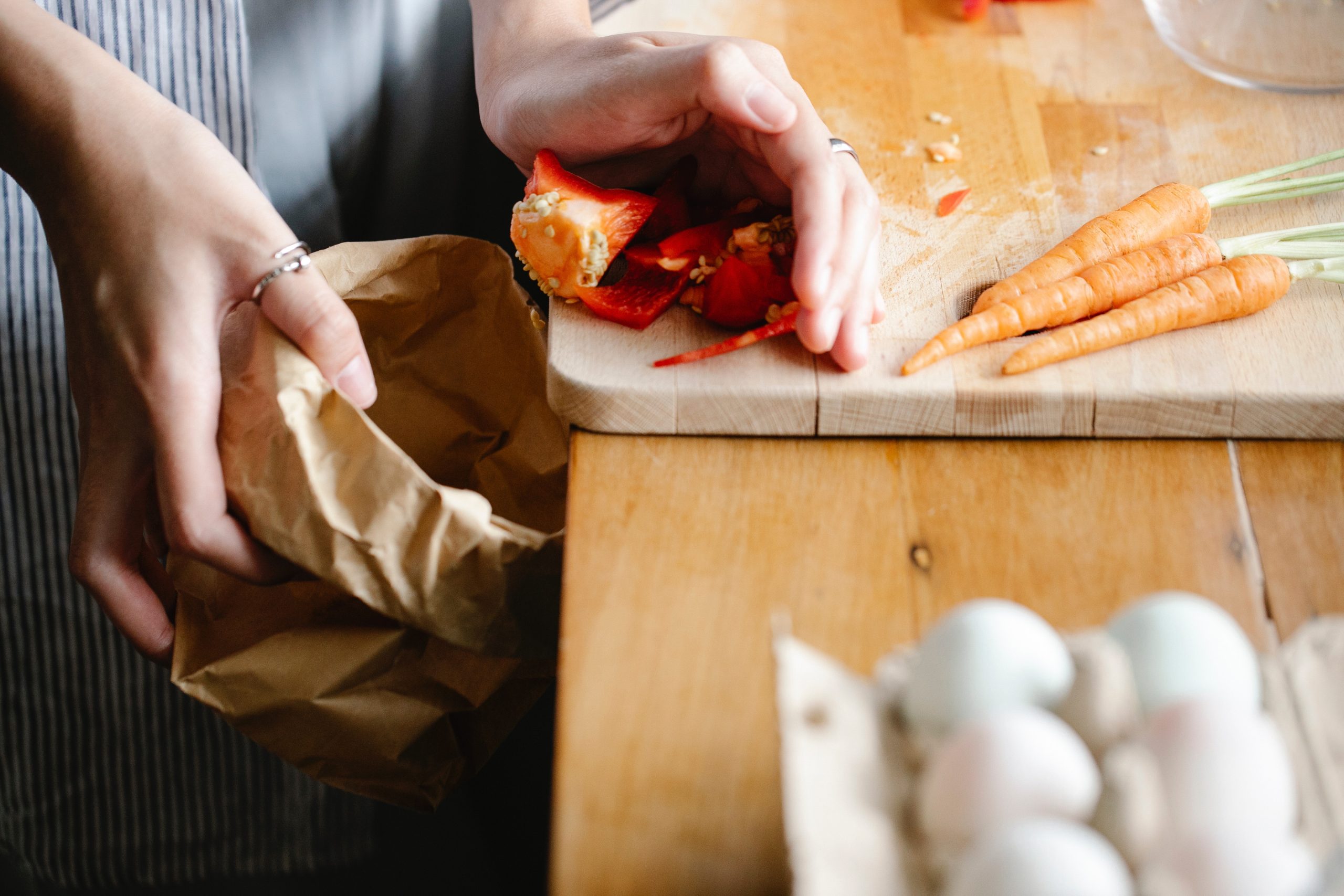If you were under the impression that the whole of the UK should now be full speed ahead with weekly separate food waste collections, you’d be right.
That was the plan under the Environment Act of 2021. In our house we talk of little else, of course, but if you don’t, and you’ve been too busy to keep up with new developments, you might have missed the news that the deadline has been pushed back from 2023 to March 2026. This is to give councils more time to prepare. (Some councils will be given longer than this to allow existing long-term disposal contracts to expire.)
Around half the councils in England already provide a separate food waste collection, as do all those in Scotland, Wales and Northern Ireland.
But if your council is one of the 50 per cent in England that doesn’t, you may be surprised to hear that this is going to happen at all. It’s the best kept secret in England. Half the country knows all about food waste collections, the other half thinks you must be joking or mistaken if you mention them. If you know someone who doesn’t have a food waste collection in their local area, ask them what they know about it.
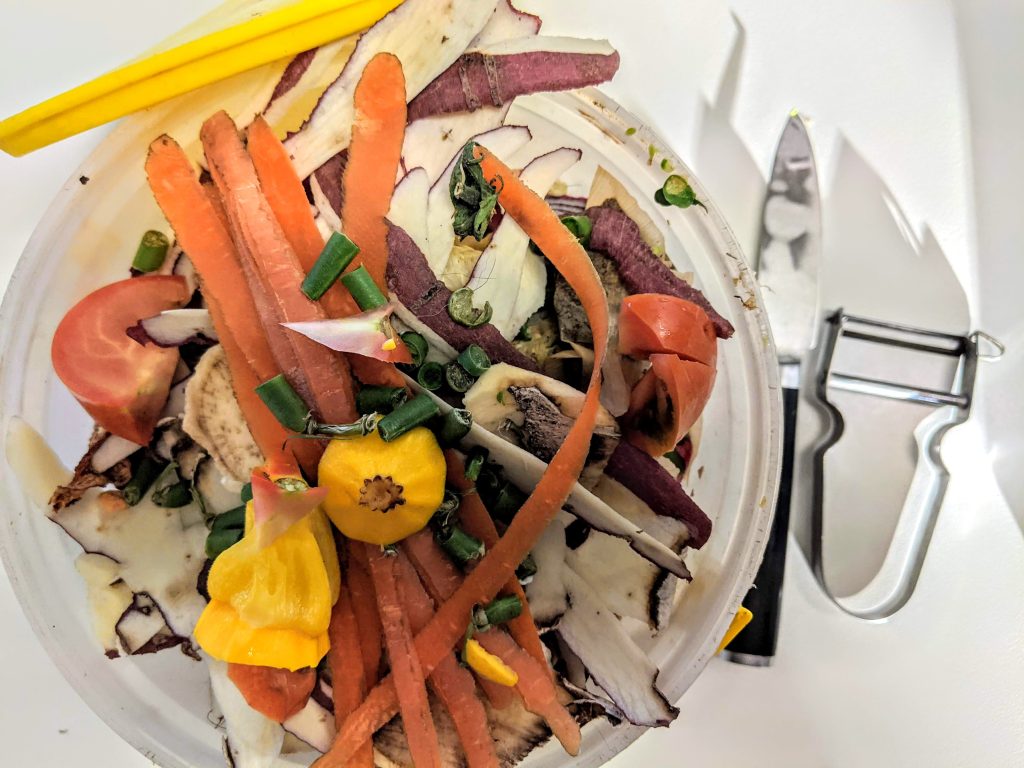
Keeping food waste separate
When I discussed the impending changes with my father-in-law (a resident of Worcestershire), he was shocked to learn that in the not-too-distant future he will have to separate out his food waste and put it in a designated container kept outside his house to be emptied by his local council.
He looked dubious as though I must have got my facts wrong. When I managed to convince him, he asked ‘Why don’t I know this?’
It’s a good question. When the change comes, it will be big news in large parts of the country. If people are not used to scraping peelings and leftovers into a caddy on a kitchen worktop, it’s a huge change to their daily habits.

Of course, people who compost are already used to treating food waste differently from other waste – they know it’s not rubbish but a precious resource – so this will be nothing new for them. They will simply carry on composting. Depending on how much waste they have, they may use the council service for overspill.
Nearly two years ago I got my parents using bokashi bins for their food waste. They have no council collection service and were horrified to think that their food waste was going to landfill or incineration. We started a system which involves me taking their filled bokashi bins – after the requisite two-week fermentation period – to empty into our Green Johanna composter. At 85 and 82, my parents are now enthusiastic bokashi fans and wouldn’t dream of throwing an apple core in their general bin.
Experienced composters think the implementation of food waste collections could prompt more people to compost. Since people will already be separating waste, it’s not much more effort to empty a kitchen caddy into a compost bin rather than a bigger external container.
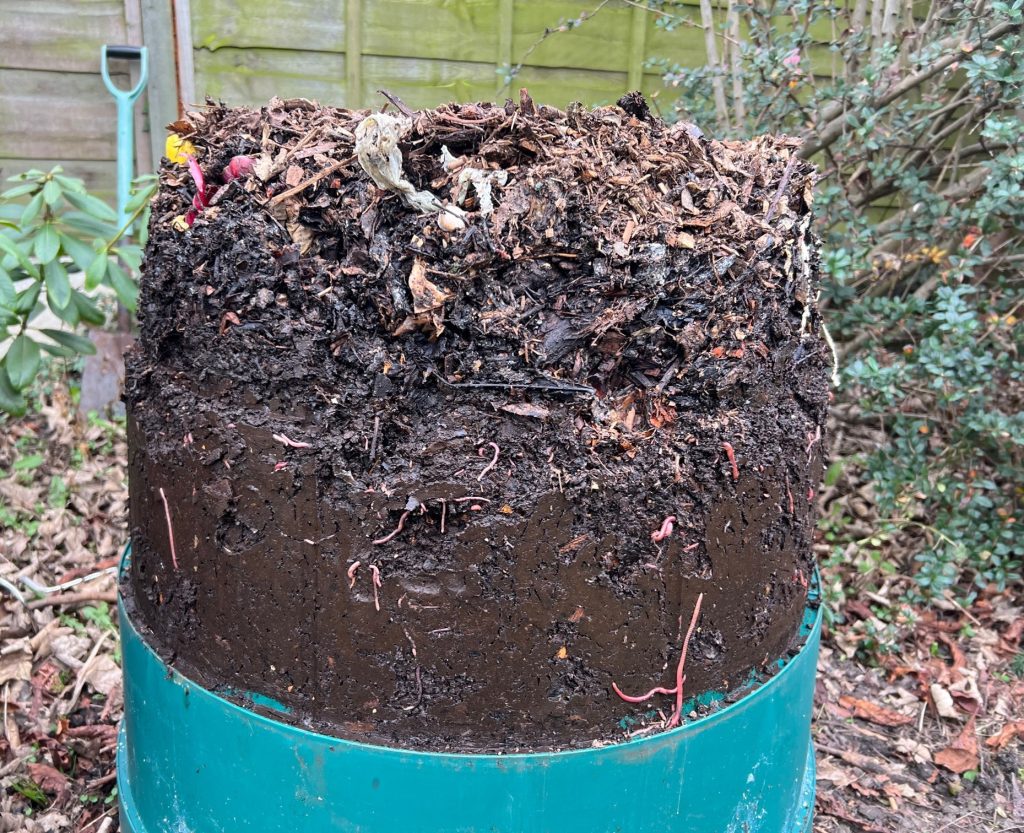
Carry on composting
At least with composting you’re managing the process of decomposition so it’s breaking down aerobically, and at source – where the waste has been produced. You also benefit from the results too – your own free compost.
There’s no doubt that separate food waste collections are a great thing; they need to happen and happen well. In the UK 70 per cent of food waste happens at home, but only around a third of people understand the harm that this causes the planet, not only in the disposal of the waste but in the production and transport of the food in the first place.
So educating people around these issues is a vital part of the new system. An additional benefit to separating waste out is that as people become more aware of how much they are wasting, they tend to waste less.
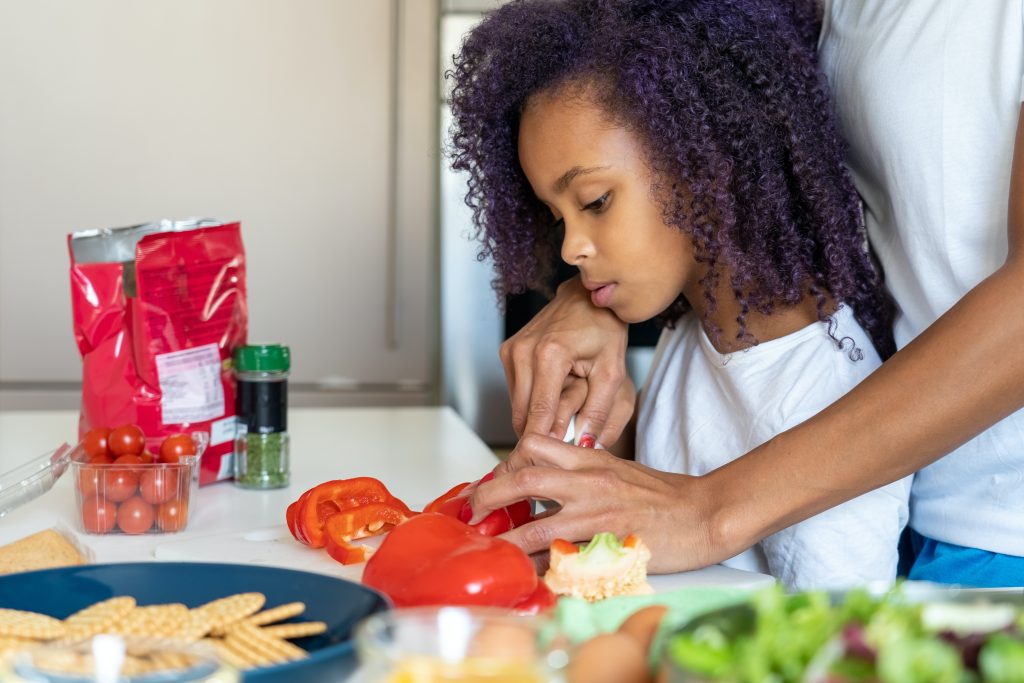
Learning about food waste
When food waste is collected along with general waste (usually called residual waste) it is either incinerated or buried in landfill and left to rot anaerobically, which causes greenhouse gas emissions. For every tonne of rotting food waste, there are over 600kg of carbon equivalent emissions, such as methane and nitrous oxide.
But when food waste is collected separately, it is taken to specially designed anaerobic digestion (AD) plants, where it is reprocessed to create fertiliser (for spreading on land) and biogas, which can be used to generate electricity. The government’s website says this digestion process will not include a composting phase due to concerns around cost and planning.
The website sounds confident that all these changes will occur smoothly, as part of the government’s target to eliminate biodegradable waste sent to landfill from 2028. But some people in the industry are concerned at the scale of how much infrastructure needs to be in place before the March 2026 deadline.
As yet, little seems to be being discussed upfront – hence my father-in-law not having a clue – and yet it will be a considerable task to inform and educate millions of people so they know what to do to avoid costly waste contamination. In addition, with election year upon us, will these plans slip from focus?
As mentioned above, Scotland, Wales, Northern Ireland and half the councils in England have already made the change, but with the other 50 per cent in England yet to join the party, it’s still a long way to go.
More AD plants will be needed – some estimates suggest there should be another 20. If not, will the waste be transported long distances out of area, which will wipe out some of the carbon benefits? Also needed will be new containers and vehicles. The government has allocated £295 million to support councils in putting plans in place.
Most councils provide households with either a 5 or 7-litre internal kitchen caddy plus a 23-litre external container. These accept all food intended for humans and pets, including inedible food parts, such as bones, shells, skins, teabags and coffee grounds. The government is still looking into the greenest options regarding caddy liners.
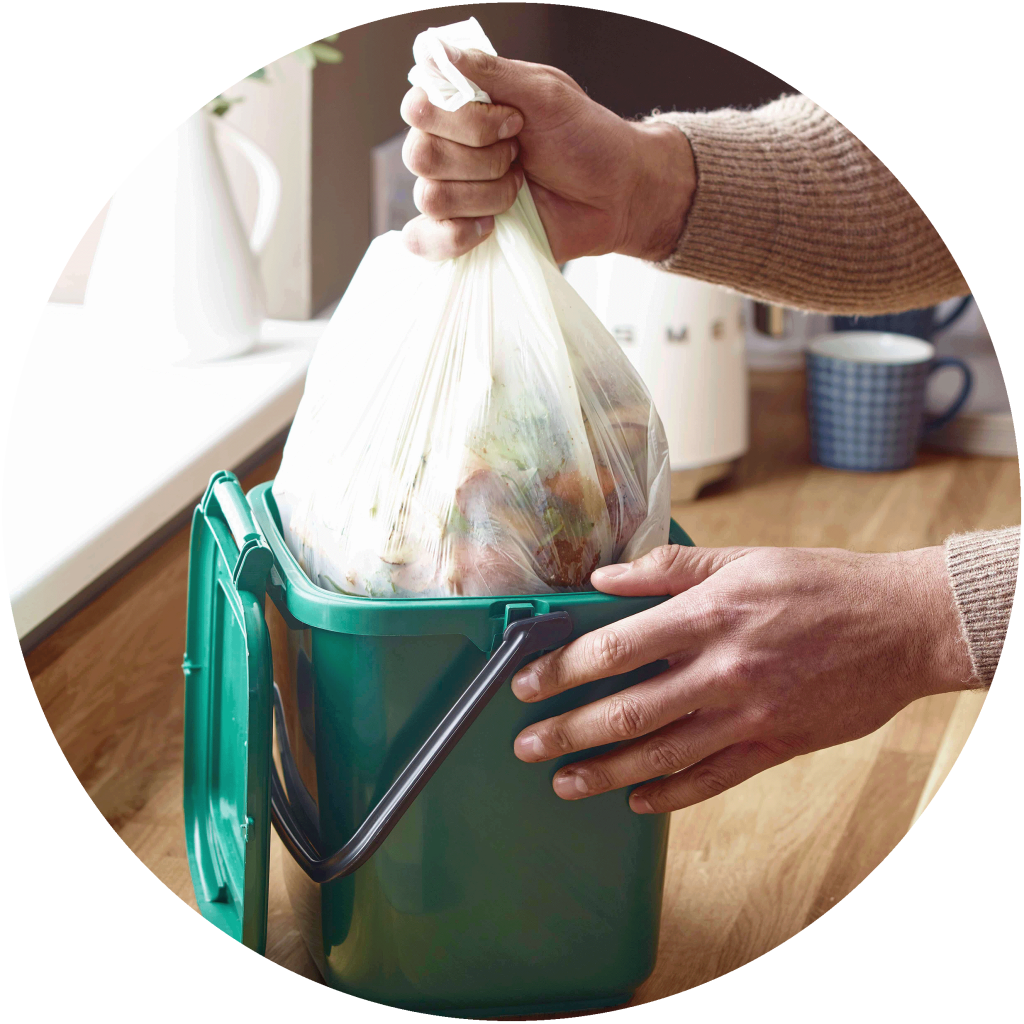
Councils have the choice of collecting garden waste together with food waste.
At the AD sites, biomethane will be injected into the gas grid and the producers paid a tariff.
In Wales – one of the best countries in the world for recycling rates – school trips are organised to AD facilities to teach pupils about food waste recycling. Research shows that the more knowledge people have about recycling, the more effective their recycling efforts will be.
Let’s hope the rest of the UK will follow the Welsh example – and soon.


